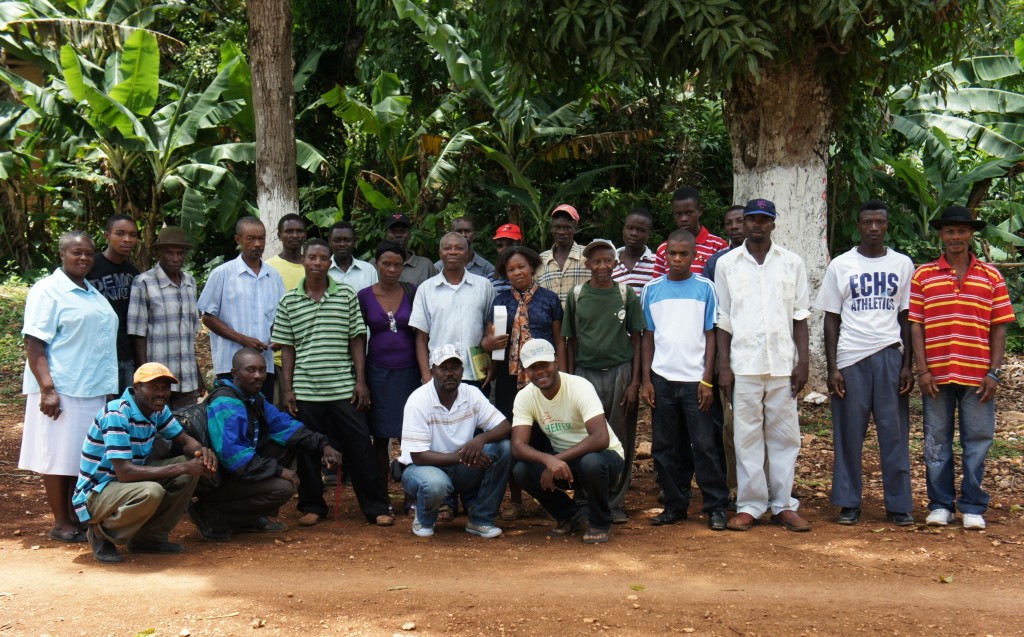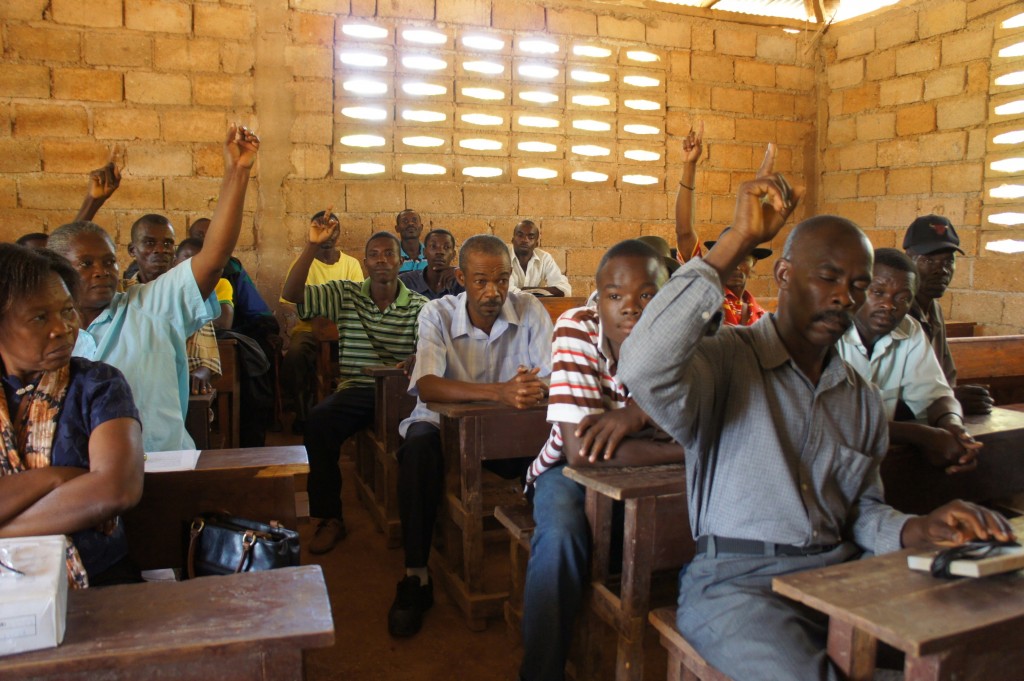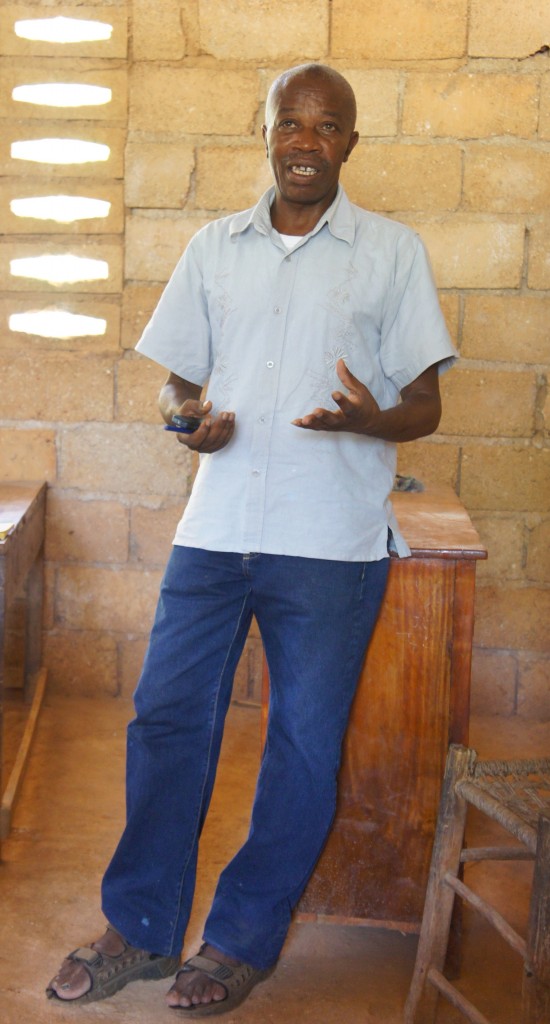At the end of the summer, I traveled to Haiti to spend a couple of weeks visiting projects with Heifer Haiti staff. For previous posts on my trip, see my page.
I would also like to note that members of ASSOPAD, the organization featured in this story, were greatly affected by Hurricane Sandy. About 15 hectares of members' crops (beans, corn, yam and bananas) were destroyed, and 28 of their goats were killed. Thirty-five member houses were damaged and three were destroyed.
Part of the reason for Heifer International's success in partnership with smallholder farmers is our extensive training process. Before any of the participants in our projects receive livestock, seeds, etc., they engage in a series of trainings that teach and reinforce principles of sustainable agriculture and livestock management, as well as a host of other issues to set them up for success.

While visiting projects in southern Haiti, I asked members of the Association for the Progress and Advancement of Deriveaux, Pestel (ASSOPADP), one of our From the Ground Up partner organizations, to discuss with me the impact of Heifer's training on their community, and I want to share some of their responses.
But first, a little context. Deriveaux is one of the most remote communities I visited in Haiti. It is somewhere in the vicinity of 60 miles away from Heifer Haiti's office in Les Cayes, but the drive took nearly four hours. The one road that takes you to Deriveaux winds around mountains and is buried by rivers a few times. More often than not, the road takes the shape of a wavy, dried out river bed. In one or two parts, locals earn money from travelers by filling in dangerously deep potholes.
All this is to say that Deriveaux is hard to get to, and more often than not, community members have only each other to rely upon. But the community is more than up to the task.
In 2004, Deriveaux community members met with the idea that they wanted to develop their community. They generally agreed that Deriveaux had problems in the areas of sanitation, education, agriculture, livestock development, infrastructure and the environment. With the formation of ASSOPADP, they started to fix those problems, and in 2010, the organization partnered with Heifer Haiti. Since that time, 40 families have received four goats each, and nine of those families have already passed on a total of 26 goats to their neighbors. Others are also preparing to Pass on the Gift. And, of course, before those families receive those goats, they will receive ample training.

Telemarck Andre, a member of ASSOPADP, said the trainings have made a difference in Deriveaux.
"Before (the Heifer training), we didn't use shelters (for the goats)," Andre said. "We used to leave them in the sun too long. Sometimes dogs would eat the goats. We treat the goats differently now."
ASSOPADP members have received many hours of training in a variety of areas, including livestock management, soil conservation, gender equity, using natural fertilizer, food management, nutrition, agriculture and even conflict management.
The last theme actually surprised me a little bit, but it makes perfect sense. The nearest judge, law enforcement officer or other official mediator is at least a couple of hours away from Deriveaux, so the community has to be able to solve conflicts on their own. The conflict management training included the formation of a committee for mediation.
Below are few additional comments ASSOPADP members made in regard to the training experience.
Dareus Fritznel on yam production: "We used to put large yams in the ground. We cut the yams now so (we will have more yams) in the garden. Customers are more likely to buy them now, too, because they are cheaper (since they are smaller)."
Telemarck Andre on the environment: "After the training, we stopped using the top of the mountain. We (use the land) in flat areas where the garden will be perfect and won't erode the mountain. Before, we cut the trees to make charcoal (for money). But we realized we were destroying ourselves. Now we plant the trees for soil conservation and to stop erosion. And we use fallen leaves for compost for our garden."
Arnaud Fleurant (ASSOPADP president) on gender: "In Haiti, some people give more importance to sons. Now sons and daughters have equal importance. Before, boys didn't do work (around the house), just girls. Now the work is shared. Families now eat together instead of having adults and children eat separately."
Fleurant added: "The people here are strong because they received training. And (through the project) people here are sharing not only goats but training with the community."
